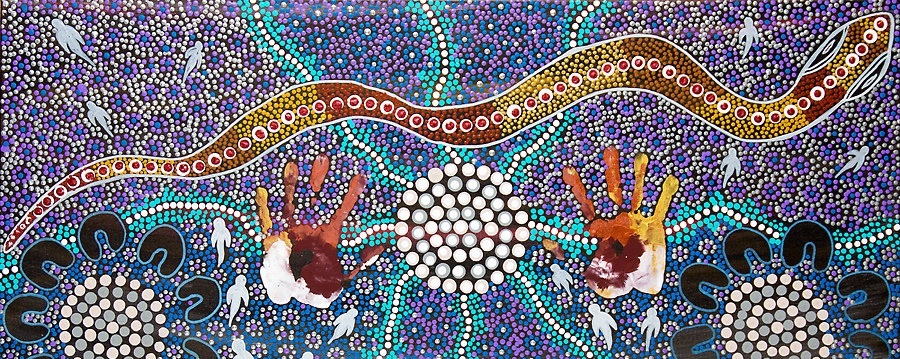When I started writing, I began to analyse this notion and found that the image didn’t sit comfortably in my business-trained mind. And how could it? My training as a business woman taught me that self-discipline, mental orderliness and logical pragmatism was the route to achievement.
If, therefore, I didn’t fit into this role of “mad genius” as creator, how could I learn to tell the stories that were inside me? Could I somehow train myself to be creative?
In seeking the answers to these questions, I needed to understand exactly what creativity is [1]. Is creativity:
a. a skill that can be learned
b. an innate personality trait
c. a process that can be perfected or
d. a flash of Divine Inspiration?
For the next few days, I will be sharing what I found on my blog. Let’s start with creativity as a learned skill.
The plethora of “How-To-Be-Creative” books loading the bookshop shelves suggests that creativity – or at least the creativity necessary to write a novel - is a learnable skill. Stephen King[2] in his memoir “On Writing” talks of an author’s “toolbox”, containing such “tools” as vocabulary and grammatical skills. He proceeds, like many authors of similar books, to advise the reader on the basic aspects of storytelling: technical skill in description, dialogue and character development, and he talks about his “re-write formula”.
King and many other authors of self-help books for writing describe a mechanical process – a methodology – of creativity that places the role of author as secondary to a pre-defined set of requirements for writing a novel that will generally satisfy a large and uniform book-buying public: the mass market.
Janice Radway[3] traces the beginning of this phenomenon to the early years of the nineteenth century. During these years, she states, the traditional view of writing a book and publishing it as a particular and individual process of creativity was challenged by an alternative view that saw the book-buying public reduced to a large, undifferentiated mass. Books become “commodities”, rather than “art”, and can be “manufactured” by relying on repetitive and popular formulas.
Genre literature – such a horror (Stephen King); detective (Ed McBain); westerns (Louis Lamour); adventure (Ian Fleming); and romance (Barbara Cartland) – do, arguably, rely on a formulaic approach in which the underlying ingredients of the novel don’t change. For example, adventure stories would feature a common theme of a lone hero saving the world, while romances would have a hero and heroine falling in love against the odds. Even if the actual form of the novel mutated into a newer, more contemporary style, this essential formula would still be core to each genre type.
jay Dixon[4] suggests that a formulaic approach to writing a novel is less important than the way in which an individual author creatively works within the boundaries of the formula of his or her category. Radway, too, credits the success of the mass market novel to the important differences perceived by the readers of category novels, despite their overtly formulaic structure. These differences within the formula are usually to do with an individual author’s “creative voice”.
However, the readers, Radway states, want certain elements to remain the same. They have certain expectations of their genre of choice, irrespective of its repetitious or formulaic quality. If these conventions – such as a happy ending - are not met, the readers become dissatisfied[5].
Creativity might appear to be no more than the ability to learn the correct method of writing a story. It is also far more than that.
Take the romance genre, for example. There is, as Dixon[6] admitted, a characteristic theme in the romances: love conquers all. But there are important differences. Each romance author has a distinct style, or 'voice'. A book can either have that spark that has the reader turning each page as fast as they can or a dullness that leaves the reader uninterested in even finishing the novel. And what one reader finds exciting may equate to total boredom in another reader, even if both books have been written with the utmost attention to technical perfection.
This implies that, even within the constraints of a creativity based on a learned methodology, there is an added factor needed to make one novel more powerful than another. Learning the formula, or kitting out a writer’s “toolbox”, is not all there is to creativity. It’s an admittedly important part of the craft of becoming a writer, but it is not the only factor in becoming a published author.
Today I looked at creativity as a skill that can be learned. Over the next few days I'll look at whether creativity is an innate personality trait or a process that can be perfected or
###
Bibliography
[1] Harnad, Stevan. Creativity: Method or Magic? Cognitive Sciences Centre Department of Psychology, University of Southampton, Highfield, Southampton, SO17 1BJ UNITED KINGDOM.
[2] King, Stephen. 2000. On Writing: A Memoir. Hodder and Stoughton. United Kingdom. Pp. 81–105.
[3] Radway, Janice A. 1984. Reading the Romance: Women, Patriarchy, and Popular Literature. University of North Carolina Press. United States of America. 1991 Edition. Pp. 21-24.
[4] Dixon, jay. 1999. The Romance Fiction of Mills & Boon 1909-1990’s. UCL Press Limited. London, United Kingdom.Pp. 2.
[5] Op cit., Radway. Pp. 49–65.
[6] Op cit., Dixon. Pp. 2.

2 comments:
I'm finding lots of interesting stuff in your blog archives, Judy. Think I will visit you frequently, to inspire and improve my writing >:)
Cold As Heaven
HEAVEN: Have fun browsing! I'm glad my old blogposts are helping you connect with your Muse! :)
Post a Comment